- Home
- Michael Shaara
The Killer Angels: The Classic Novel of the Civil War
The Killer Angels: The Classic Novel of the Civil War Read online
Praise for
The Killer Angels
“The best Civil War novel ever written … The descriptions of combat are incomparable; they convey not just the sights but the noise and smell of battle. And the characterizations are simply superb.… Shaara has managed to capture the essence of war, the divided friendships, the madness, and the heroism of fratricidal conflict.”
—STEPHEN B. OATES, author of With Malice Toward None
“[Shaara] writes with clarity and power.… His descriptions of the battle scenes are vivid and unsparing.”
—Newsday
“Akin to Hemingway … [and] Stephen Crane’s Red Badge of Courage.”
—The Houston Post
“A compelling version of what America’s Armageddon must have been like … surefire storytelling.”
—Publishers Weekly
“You will learn more from this utterly absorbing book about Gettysburg than from any nonfictional account. Shaara fabulously, convincingly brings characters such as Robert E. Lee to life and makes the conflict all too real.”
—Forbes
“Literary wonders will never cease. Would you think it possible that after all the hundreds of books written about the battle of Gettysburg, both fiction and nonfiction, that… [this] novel about the battle could come out fresh, utterly absorbing, with the strong possibility that it may even turn out to be a classic? Well, read Michael Shaara’s … The Killer Angels and find out.”
—The Frederick News-Post (Frederick, Maryland)
“Narrated as expertly as though Michael Shaara had been a participant in the battle of Gettysburg.”
—The Journal Gazette (Fort Wayne, Indiana)
“It’s at one and the same time an excellent, historical novel, a bitter anti-war tract, and a story filled with an amazing case of beautifully realized characters.”
—Daily Sun (Hudson, Massachusetts)
“An approach so fresh it is stunning.”
—St. Louis Globe-Democrat
“The Killers Angels could well be the best Civil War novel of this decade.”
—The News Leader (Richmond, Virginia)
“All in all it is a feast of reading, the best you will find for a long, long time.”
—The Chattanooga Times
“What makes Shaara’s novel an admirable effort, and one worth reading, is its sensitiveness to the time-spirit of the era. What it reveals is primarily men in context, men in action, and thought within the changing scenery of events. It is a genuinely appealing book.”
—The Charlotte Observer
“This is one of the best novels of the Civil War that I’ve read.”
—Daily Press (Newport News, Virginia)
ALSO BY MICHAEL SHAARA
The Broken Place
The Herald
For Love of the Game
The Killer Angels is a work of historical fiction. Apart from the well-known actual people, events, and locales that figure in the narrative, all names, characters, places, and incidents are the product of the author’s imagination or are used fictitiously. Any resemblance to current events or locales, or to living persons, is entirely coincidental.
2011 Ballantine Books Trade Paperback Edition
Copyright © 1974 by Michael Shaara
Copyright renewed © 2002 by Jeff M. Shaara and Lila E. Shaara
All rights reserved.
Published in the United States by Ballantine Books, an imprint of The Random House Publishing Group, a division of Random House, Inc., New York.
BALLANTINE and colophon are registered trademarks of Random House, Inc.
Originally published in hardcover in the United States by David McKay Co., Inc., an imprint of The Random House Publishing Group, a division of Random House, Inc., in 1974.
eISBN: 978-0-345-51373-1
www.ballantinebooks.com
Cover design: Michael Boland/Boland Design Company
Cover illustration: Gilbert Gaul, Glorious Fighting, 1885 (detail)(Collection of the Birmingham Museum of Art/Gift of John Meyer)
Maps by Don Pitcher
v3.1
TO LILA (OLD GEORGE)
… IN WHOM I AM WELL PLEASED
“When men take up arms to set other men free, there is something sacred and holy in the warfare.”
—WOODROW WILSON
“I hate the idea of causes, and if I had to choose between betraying my country and betraying my friend, I hope I should have the guts to betray my country.”
—E.M. FORSTER
“With all my devotion to the Union and the feeling of loyalty and duty of an American citizen, I have not been able to raise my hand against my relatives, my children, my home. I have therefore resigned my commission in the Army.…”
—from a letter of ROBERT E. LEE
Mr. Mason: How do you justify your acts?
John Brown: I think, my friend, you are guilty of a great wrong against God and humanity—I say it without wishing to be offensive—and it would be perfectly right for anyone to interfere with you so far as to free those you willfully and wickedly hold in bondage. I do not say this insultingly.
Mr. Mason: I understand that.
—from an interview with
JOHN BROWN after his capture
CONTENTS
Cover
Other Books by This Author
Title Page
Copyright
Dedication
Epigraph
LIST OF MAPS
TO THE READER
FOREWORD
THE KILLER ANGELS
MONDAY, JUNE 29, 1863
1. THE SPY
2. CHAMBERLAIN
3. BUFORD
4. LONGSTREET
WEDNESDAY, JULY 1, 1863: THE FIRST DAY
1. LEE
2. BUFORD
3. LEE
4. CHAMBERLAIN
5. LONGSTREET
6. LEE
7. BUFORD
THURSDAY, JULY 2, 1863: THE SECOND DAY
1. FREMANTLE
2. CHAMBERLAIN
3. LONGSTREET
4. CHAMBERLAIN
5. LONGSTREET
6. LEE
FRIDAY, JULY 3, 1863
1. CHAMBERLAIN
2. LONGSTREET
3. CHAMBERLAIN
4. ARMISTEAD
5. LONGSTREET
6. CHAMBERLAIN
AFTERWORD
About the Author
LIST OF MAPS
Situation June 1863: the routes of the armies
Situation Noon, June 30: Buford enters Gettysburg
Gettysburg
The First Day—dawn: Buford’s defense of Gettysburg
Situation Evening, June 30
Dawn, July 1
Situation at 9:00 A.M., July I: Buford’s defense
The First Day—11:00 A.M.: situation after the death of Reynolds
The First Day—3:00–4:00 P.M.: attack of Ewell’s Corps on Howard’s flank
Chamberlain’s route to Gettysburg
Situation at the close of the First Day
The Second Day—morning: estimated Union position
The Second Day—morning: Lee’s plan for Longstreet’s assault on the Union left
Longstreet’s Countermarch
The Second Day—4:00 P.M.: actual line attacked by Longstreet after Sickles’ move forward
The Second Day—5:00 P.M.: defense of Devil’s Den and Little Round Top
Situation at the close of the Second Day
The Third Day—2:30 P.M.: Lee’s plan for Pickett’s Charge
TO THE READER
This
is the story of the Battle of Gettysburg, told from the viewpoints of Robert E. Lee and James Longstreet and some of the other men who fought there.
Stephen Crane once said that he wrote The Red Badge of Courage because reading the cold history was not enough; he wanted to know what it was like to be there, what the weather was like, what men’s faces looked like. In order to live it he had to write it. This book was written for much the same reason.
You may find it a different story from the one you learned in school. There have been many versions of that battle and that war. I have therefore avoided historical opinions and gone back primarily to the words of the men themselves, their letters and other documents. I have not consciously changed any fact. I have condensed some of the action, for the sake of clarity, and eliminated some minor characters, for brevity; but though I have often had to choose between conflicting viewpoints, I have not knowingly violated the action. I have changed some of the language. It was a naïve and sentimental time, and men spoke in windy phrases. I thought it necessary to update some of the words so that the religiosity and naïveté of the time, which were genuine, would not seem too quaint to the modern ear. I hope I will be forgiven that.
The interpretation of character is my own.
MICHAEL SHAARA
FOREWORD
June 1863
I. THE ARMIES
On June 15 the first troops of the Army of Northern Virginia, Robert E. Lee commanding, slip across the Potomac at Williamsport and begin the invasion of the North.
It is an army of seventy thousand men. They are rebels and volunteers. They are mostly unpaid and usually self-equipped. It is an army of remarkable unity, fighting for disunion. It is Anglo-Saxon and Protestant. Though there are many men who cannot read or write, they all speak English. They share common customs and a common faith and they have been consistently victorious against superior numbers. They have as solid a faith in their leader as any veteran army that ever marched. They move slowly north behind the Blue Ridge, using the mountains to screen their movements. Their main objective is to draw the Union Army out into the open where it can be destroyed. By the end of the month they are closing on Harrisburg, having spread panic and rage and despair through the North.
Late in June the Army of the Potomac, ever slow to move, turns north at last to begin the great pursuit which will end at Gettysburg. It is a strange new kind of army, a polyglot mass of vastly dissimilar men, fighting for union. There are strange accents and strange religions and many who do not speak English at all. Nothing like this army has been seen upon the planet. It is a collection of men from many different places who have seen much defeat and many commanders. They are volunteers: last of the great volunteer armies, for the draft is beginning that summer in the North. They have lost faith in their leaders but not in themselves. They think this will be the last battle, and they are glad that it is to be fought on their own home ground. They come up from the South, eighty thousand men, up the narrow roads that converge toward the blue mountains. The country through which they march is some of the most beautiful country in the Union.
It is the third summer of the war.
II. THE MEN
Robert Edward Lee. He is in his fifty-seventh year. Five feet ten inches tall but very short in the legs, so that when he rides a horse he seems much taller. Red-faced, like all the Lees, white-bearded, dressed in an old gray coat and a gray felt hat, without insignia, so that he is mistaken sometimes for an elderly major of dignity. An honest man, a gentleman. He has no “vices.” He does not drink or smoke or gamble or chase women. He does not read novels or plays; he thinks they weaken the mind. He does not own slaves nor believe in slavery, but he does not believe that the Negro, “in the present stage of his development,” can be considered the equal of the white man. He is a man in control. He does not lose his temper nor his faith; he never complains. He has been down that spring with the first assault of the heart disease which will eventually kill him. He believes absolutely in God. He loves Virginia above all, the mystic dirt of home. He is the most beloved man in either army.
He marches knowing that a letter has been prepared by Jefferson Davis, a letter which offers peace. It is to be placed on the desk of Abraham Lincoln the day after Lee has destroyed the Army of the Potomac somewhere north of Washington.
James Longstreet, Lieutenant General, forty-two. Lee’s second in command. A large man, larger than Lee, full-bearded, blue-eyed, ominous, slow-talking, crude. He is one of the first of the new soldiers, the cold-eyed men who have sensed the birth of the new war of machines. He has invented a trench and a theory of defensive warfare, but in that courtly company few will listen. He is one of the few high officers in that army not from Virginia.
That winter, in Richmond, three of his children have died within a week, of a fever. Since that time he has withdrawn, no longer joins his men for the poker games he once loved, for which he was famous.
They call him “Old Pete” and sometimes “The Dutchman.” His headquarters is always near Lee, and men remark upon the intimacy and some are jealous of it. He has opposed the invasion of Pennsylvania, but once the army is committed he no longer opposes. Yet he will speak his mind; he will always speak his mind. Lee calls him, with deep affection, “my old war horse.” Since the death of Stonewall Jackson he has been Lee’s right hand. He is a stubborn man.
George Pickett, Major General, forty-two. Gaudy and lovable, longhaired, perfumed. Last in his class at West Point, he makes up for a lack of wisdom with a lusty exuberance. In love with a girl half his age, a schoolgirl from Lynchburg named LaSalle Corbelle, to whom he has vowed ne’er to touch liquor. Received his appointment to West Point through the good offices of Abraham Lincoln, a personal friend, and no one now can insult Abe Lincoln in Pickett’s presence, although Lincoln is not only the enemy but the absolute utterest enemy of all.
On the march toward Gettysburg Pickett’s Virginia Division is by a trick of fate last in line. He worries constantly that he will miss the last great battle of the war.
Richard Ewell, Lieutenant General, forty-six. Egg-bald, one-legged, recently married. (He refers to his new wife absentmindedly as “Mrs. Brown.”) Eccentric, brilliant, chosen out of all Lee’s officers to succeed to a portion of Stonewall Jackson’s old command. But he has lost something along with the leg that a soldier sometimes loses with the big wounds. He approaches Gettysburg unsure of himself, in command of twenty thousand men.
Ambrose Powell Hill, Major General, thirty-seven. Has risen to command the other part of Jackson’s old corps. A moody man, often competent, bad-tempered, wealthy, aspires to a place in Richmond society, frets and broods and fights with superiors. He wears a red shirt into battle. He should be a fine soldier, and sometimes is, but he is often ill for no apparent reason. He does not like to follow orders. At Gettysburg he will command a corps, and he will be sick again.
Lewis Armistead, Brigadier General, forty-six. Commander of one of George Pickett’s brigades. They call him “Lo,” which is short for Lothario, which is meant to be witty, for he is a shy and silent man, a widower. Descended from a martial family, he has a fighter’s spirit, is known throughout the old army as the man who, while a cadet at the Point, was suspended for hitting Jubal Early in the head with a plate. Has developed over long years of service a deep affection for Winfield Scott Hancock, who fights now with the Union. Armistead looks forward to the reunion with Hancock, which will take place at Gettysburg.
Richard Brooke Garnett, Brigadier General, forty-four. Commands the second of Pickett’s brigades. A dark-eyed, silent, tragic man. Followed Jackson in command of the old Stonewall Brigade; at Kerns-town he has made the mistake of withdrawing his men from an impossible position. Jackson is outraged, orders a court-martial which never convenes. Jackson dies before Garnett, accused of cowardice, can clear his name and redeem his honor, the honor which no man who knows him has ever doubted. He comes to Gettysburg a tortured man, too ill to walk. He believes that Jackson deliberately
lied. In that camp there is nothing more important than honor.
J. E. B. Stuart, Lieutenant General, thirty. The laughing banjo player, the superb leader of cavalry who has ridden rings around the Union Army. A fine soldier, whose reports are always accurate, but a man who loves to read about himself in the Richmond newspapers. His mission that month is to keep Lee informed of the movement of the Union Army. He fails.
Jubal Early, Major General, forty-six. Commander of one of Ewell’s divisions. A dark, cold, icy man, bitter, alone. Left the Point to become a prosecuting attorney, to which he is well suited. A competent soldier, but a man who works with an eye to the future, a slippery man, a careful soldier; he will build his reputation whatever the cost. Dick Ewell defers to him. Longstreet despises him. Lee makes do with the material at hand. Lee calls him “my bad old man.”
These men wore blue:
Joshua Lawrence Chamberlain, Colonel, thirty-four. He prefers to be called “Lawrence.” A professor of rhetoric at Bowdoin University, sometime professor of “Natural and Revealed Religion,” successor to the chair of the famed Professor Stowe, husband to Harriet Beecher. Tall and rather handsome, attractive to women, somewhat boyish, a clean and charming person. An excellent student, Phi Beta Kappa, he speaks seven languages and has a beautiful singing voice, but he has wanted all his life to be a soldier. The university will not free him for war, but in the summer of 1862 he requests a sabbatical for study in Europe. When it is granted he proceeds not to France but to the office of the Governor of Maine, where he receives a commission in the 20th Regiment of Infantry, Maine Volunteers, and marches off to war with a vast faith in the brotherhood of man. Spends the long night at Fredericksburg piling corpses in front of himself to shield him from bullets. Comes to Gettysburg with that hard fragment of the Regiment which has survived. One week before the battle he is given command of the regiment. His younger brother Thomas becomes his aide. Thomas too has yearned to be a soldier. The wishes of both men are to be granted on the dark rear slope of a small rocky hill called Little Round Top.

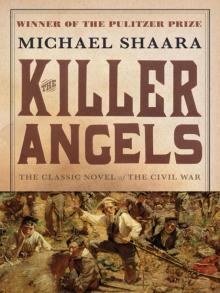 The Killer Angels: The Classic Novel of the Civil War
The Killer Angels: The Classic Novel of the Civil War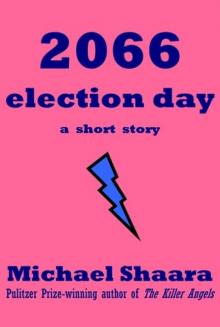 2066 Election Day
2066 Election Day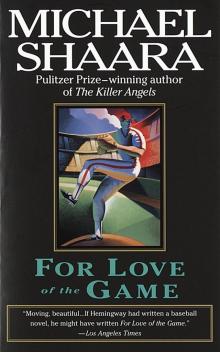 For Love of the Game
For Love of the Game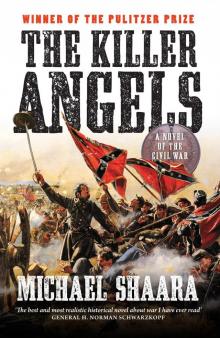 The Book
The Book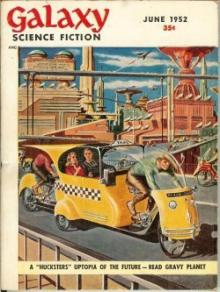 Galaxy
Galaxy Conquest Over Time
Conquest Over Time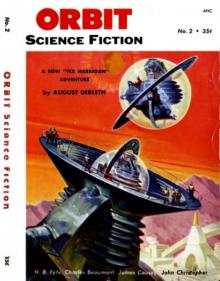 Potential Enemy
Potential Enemy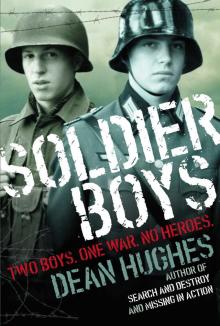 Soldier Boy
Soldier Boy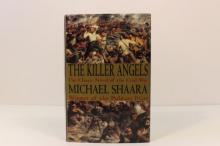 Wainer
Wainer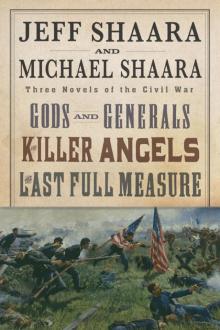 The Civil War Trilogy: Gods and Generals / the Killer Angels / the Last Full Measure
The Civil War Trilogy: Gods and Generals / the Killer Angels / the Last Full Measure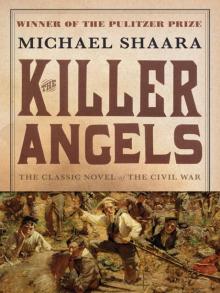 The Killer Angels
The Killer Angels